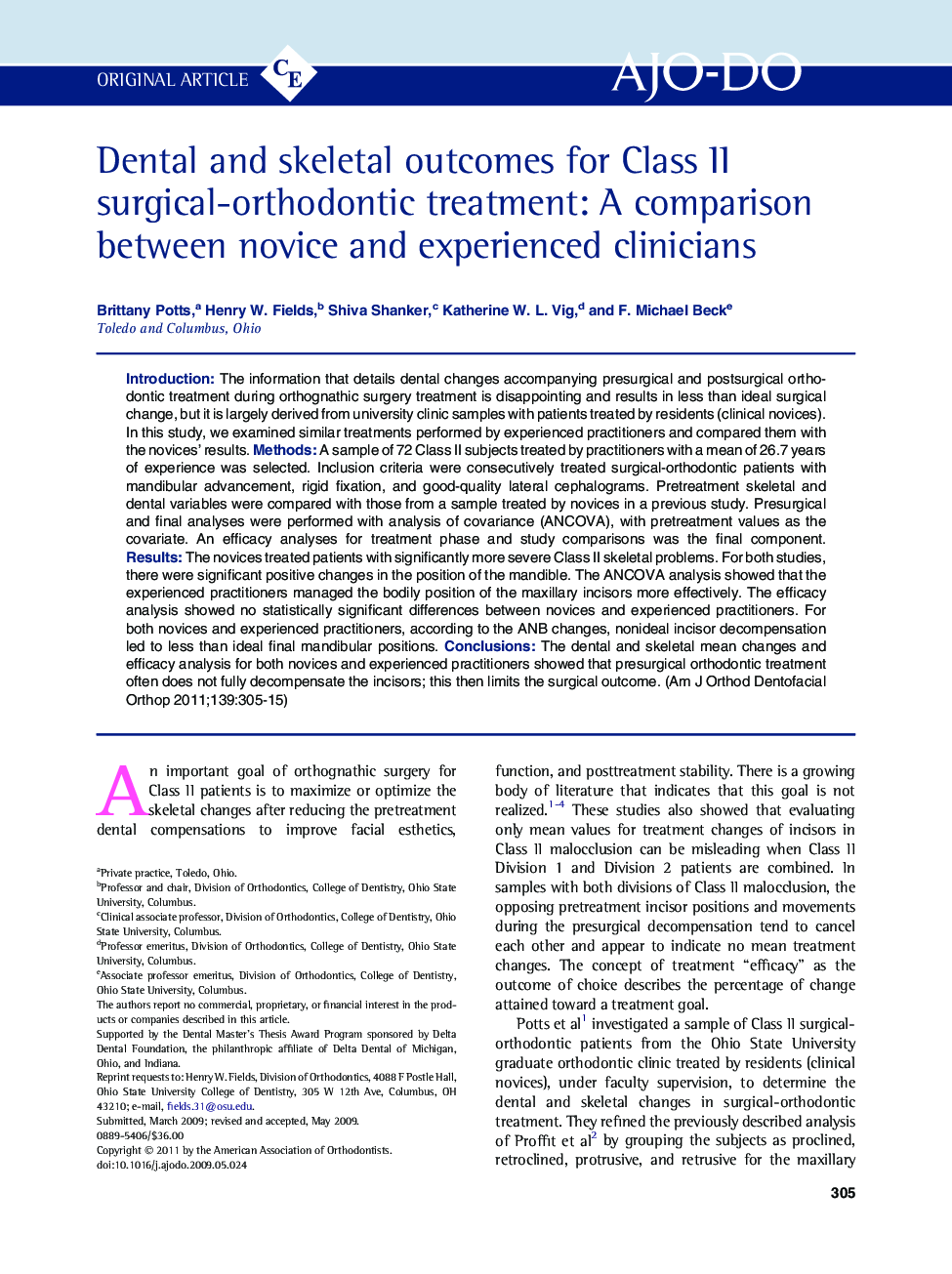| Article ID | Journal | Published Year | Pages | File Type |
|---|---|---|---|---|
| 3117120 | American Journal of Orthodontics and Dentofacial Orthopedics | 2011 | 11 Pages |
IntroductionThe information that details dental changes accompanying presurgical and postsurgical orthodontic treatment during orthognathic surgery treatment is disappointing and results in less than ideal surgical change, but it is largely derived from university clinic samples with patients treated by residents (clinical novices). In this study, we examined similar treatments performed by experienced practitioners and compared them with the novices’ results.MethodsA sample of 72 Class II subjects treated by practitioners with a mean of 26.7 years of experience was selected. Inclusion criteria were consecutively treated surgical-orthodontic patients with mandibular advancement, rigid fixation, and good-quality lateral cephalograms. Pretreatment skeletal and dental variables were compared with those from a sample treated by novices in a previous study. Presurgical and final analyses were performed with analysis of covariance (ANCOVA), with pretreatment values as the covariate. An efficacy analyses for treatment phase and study comparisons was the final component.ResultsThe novices treated patients with significantly more severe Class II skeletal problems. For both studies, there were significant positive changes in the position of the mandible. The ANCOVA analysis showed that the experienced practitioners managed the bodily position of the maxillary incisors more effectively. The efficacy analysis showed no statistically significant differences between novices and experienced practitioners. For both novices and experienced practitioners, according to the ANB changes, nonideal incisor decompensation led to less than ideal final mandibular positions.ConclusionsThe dental and skeletal mean changes and efficacy analysis for both novices and experienced practitioners showed that presurgical orthodontic treatment often does not fully decompensate the incisors; this then limits the surgical outcome.
